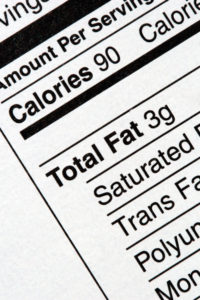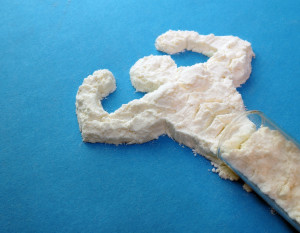** FDA Updating Requirements for “Healthy” Claims on Food Labeling **
By: Brent E. Johnson

One of the trending areas we have blogged about last year was “healthy” claims in food labelling becoming the new “all natural” target; see Hunter v. Nature’s Way Prod., LLC, No. 16CV532-WQH-BLM, 2016 WL 4262188, at *1 (S.D. Cal. Aug. 12, 2016) (Coconut Oil); Campbell v. Campbell Soup Co., No 3:16-cv-01005 (S.D. Cal. August 8, 2016) (Dkt 18) (Healthy Request® canned soups); Lanovaz v. Twinings N. Am., Inc., No. 5:12-CV-02646-RMW (N.D. Cal. September 6, 2016) (Twinings bagged tea). It is a lucrative area for the plaintiff’s bar. James Boswell et al. v. Costco Wholesale Corp., No. 8:16-cv-00278 (C.D. Cal) (recent $750,000 coconut oil settlement based on “healthy” labeling).
In many respects this trend was kicked off in 2015 by the Food & Drug Administration (FDA) who issued the KIND® company a not so kind letter asking the company, pursuant to 21 U.S.C. § 343(r)(1)(A) to remove any mention of the term “healthy” from its packaging and website. See our prior blog post. The basis for the FDA’s action is that the term “healthy” has specifically defined meanings under 21 CFR 101.65(d)(2) which includes objective measures such as saturated fat content (must be > 1 g) (see 21 CFR 101.62(c)(2)). Later in 2016 the FDA seemingly had a change of heart – emailing Kind and stating that the company can return the “healthy” language – as long use “healthy” is used in relation to its “corporate philosophy,” not as a nutrient claim.
Notably, this sparked a wider public health debate about the meaning of “healthy” and whether the focus, for example on the type of fat rather than the total amount of fat consumed, should be reconsidered in light of evolving science on the topic. In September 2016 the FDA issued a guidance document (Guidance for Industry: Use of the Term “Healthy” in the Labeling of Human Food Products) stating that FDA does not intend to enforce the regulatory requirements for products that use the term healthy if the food is not low in total fat, but has a fat profile makeup of predominantly mono and polyunsaturated fats.
The FDA also requested public comment on the “Use of the Term “Healthy” in the Labeling of Human Food Products” – which comment period ended this week. Comments poured in from consumers and industry stakeholders, reaching 1,100 before the period closed on April 26, 2017. The FDA has not provided a timeline as to when revisions to the definition of “healthy” might occur following these public comments – and it is not clear if President Donald Trump’s January executive order, requiring that two regulations be nixed for every new rule that is passed, will hinder the FDA’s ability to issue a rulemaking on the term “healthy” in the near future. It is also not clear whether the FDA will combine the rulemaking with its current musing of use of the term “natural” – as the terms are sometimes used synonymously. Industry groups (and the defense bar) are hopeful though that some clarity will come sooner rather than later.

 ** Do we have a new “sue-me” State for Food and Class Litigators? **
** Do we have a new “sue-me” State for Food and Class Litigators? **